A memory or a future of "Second Nuclear"
Ralitsa Kovacheva, February 26, 2010
 Nuclear power station construction could cause furious political, economic and purely professional disputes among energy experts. It could cause the protests of environmentalists and the support of trade unions. But can it turn into a Gordian Knot of passions, demagogy and ideology for more than 20 years and to become one of the division lines of the whole so called Bulgarian transition?
Nuclear power station construction could cause furious political, economic and purely professional disputes among energy experts. It could cause the protests of environmentalists and the support of trade unions. But can it turn into a Gordian Knot of passions, demagogy and ideology for more than 20 years and to become one of the division lines of the whole so called Bulgarian transition?
It proved that the Belene nuclear power station project is exactly this. There is no government from the transition period which did not deal with the project's fate, which did not put the project to public discussions in essence - about the actual economic needs and benefits, but not those that were relevant 30 years ago but those that will be in 30 years. Belene became a symbol of division between blues and reds (democrats and socialists), right and left, young and old, between environmentalists and energy experts, Russophiles and Russophobes.
Today, almost 30 years after the first "first dig"* at the site of the station everyone seems to have 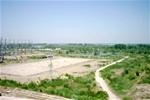 forgotten what was the dispute about. This is why we go back to the beginning when 7 thousand workers start the construction of the site of the "Second Nuclear". It was a time when nobody could foresee that the construction will be frozen for years ahead and 4 out of the 6 reactors of the first nuclear Kozloduy will be closed.
forgotten what was the dispute about. This is why we go back to the beginning when 7 thousand workers start the construction of the site of the "Second Nuclear". It was a time when nobody could foresee that the construction will be frozen for years ahead and 4 out of the 6 reactors of the first nuclear Kozloduy will be closed.
This period - the beginning of the 80-s of the last century - the energy experts remember with tenderness. They talk about the enthusiasm, the professional ambitions, the big plans how the new station would produce enough electricity for the industry. According to Stamen Stamenov, former director of the Investment Control Directorate at Kozloduy nuclear station, the decisive motive for the beginning of the construction of Belene was the growing need of electricity:
"Energy infrastructure is coping well in the last 20 years only because the industry collapsed and the consumption of electricity dropped. Otherwise until 1989-1990 it was often in extreme conditions when the households started to consume more, the energy system to be on the brink of collapsing".
Petar Simeonov is the man who broke the bottle of champagne at the first "first dig" at Belene. He is a former Project Director and a member of the 40th National Parliament, elected from the lists of the socialists. He remembers how after a government decision in 1980, in 1981 the construction work began. More than 7 thousand people and 40 enterprises worked on the site. According to the agreement with the Russians, initially two 1,000 MW reactors were to be built and the capacity of the site was to house another four reactors.
 The first three years were dedicated to building the construction-installation base. Later, the first legends about the radioactive danger coming from the station started to circulate, Stamen Stamenov remembers:
The first three years were dedicated to building the construction-installation base. Later, the first legends about the radioactive danger coming from the station started to circulate, Stamen Stamenov remembers:
"We were invited to clarify to the local population that after all this is a normal enterprise, where normal people work. At the gathering a woman said: "Because of this nuclear power station each fruit from my plum were twins". But there was no nuclear power station back then - it was only concrete and iron".
According to Petar Simeonov the legend of the seismographic activity of the region is also not true. He remembers that the Vrancha earthquake did not cause any damages on the site. That there were no data of increased seismic activity in the region is written in the Environmental Impact Assessment Report, ordered by the National Electricity Company:
"The seismic activity in the local area surrounding the nuclear power station Belene is thoroughly examined. In the 30 km zone of Belene there are no indications of earthquakes with intensity stronger than 2.5 ... . From the point of view of the seismotectonic and seismic risk there are no conditions that could prevent the usage of Belene", the report says.
According to Stamen Stamenov, the seismic argument is unsubstantiated in general - in Japan there are nuclear power stations in far more seismic regions. Everything is a matter of construction calculations, he says.
Nevertheless, in the beginning of 1990 a political decision is taken the work on the station to stop. According to Stamen Stamenov,
"many people who wanted to become mayors or members of parliament wanted to show how much they cared about health, safety and life of people and they created this feeling that the future is mutations, death ... . There was a very strong campaign".
200-250 people remain at the site with the task to preserve what was built by then at the cost of $1.2 bn in the form of raw materials, facilities and the equipment for the first reactor, Petar Simeonov is telling us.
In 2002 the government of the former tzar and leader of the NDSV party Simeon Saxecobourgghotta unfroze the Belene project and in 2006 Atomstroyexport was chosen to complete the construction. The price is almost 4 bn euro. Against which the Russian company must build 2 1,000 MW reactors. After the initial inspiration - again silence and calm.
The government of Stanishev has a great guilt for the delay, Petar Simeonov thinks. For the last 4 years he was a member of parliament from the group of the socialists whose leader Stanishev is. Stanishev makes the "newspaper" first dig but the work on the project again stopped, Simeonov says. There is no explanation why, especially given the fact that the Russians generously offered to finance the project with a loan. Several days ago the ruling party GERB announced that it will accept 2 bn euro Russian funding until a new strategic investor is found for the project after RWE withdrew.
Both Stamenov and Simeonov firmly disagree with the idea that it is cheaper to build new 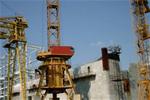 reactors in the Kozloduy nuclear power station than to build Belene. They say that research and planning of a possible 7th reactor at Kozloduy will take years while the Belene projects are ready. The 2,704 decare site is ready, a great part of the infrastructure too, so if in the end of the year the construction works could resume, the station would be ready in 4-5 years. And regarding the dependence from Russia, both men do not see a problem with Russia's funding. They say that the Russians are interested in benefiting from the project, they are not building a monument. Of course they have economic interests otherwise no one would throw away so much money for political purposes only, the experts think.
reactors in the Kozloduy nuclear power station than to build Belene. They say that research and planning of a possible 7th reactor at Kozloduy will take years while the Belene projects are ready. The 2,704 decare site is ready, a great part of the infrastructure too, so if in the end of the year the construction works could resume, the station would be ready in 4-5 years. And regarding the dependence from Russia, both men do not see a problem with Russia's funding. They say that the Russians are interested in benefiting from the project, they are not building a monument. Of course they have economic interests otherwise no one would throw away so much money for political purposes only, the experts think.
Nevertheless they do not exclude geopolitical pressure because of the big money and the many criss-crossing interests. They say the allegations that the reactors can work with Russian fuel only are not true - the fuel could be ordered from anywhere, it's just a matter of a price and negotiations. They also don't see a problem in Russia reprocessing the fuel, nor a reason Bulgaria to invest in a depository. The experts do not believe the tales that the project has become more expensive and reached a price of 10 bn euro because of the delay. They say that the project is good technically and economically.
While I was listening to the people who laid the foundations of the Belene nuclear power station I was wondering why politicians cannot defend the project with the same passion and conviction? Even when they say that it is profitable and lucrative they sound as if they don't believe this themselves. And this is probably true since there is no concrete information, no details of how the project will develop further, how the ownership issues will be solved, who will buy the electricity from it and at what price. The experts might have the answers but politicians - obviously not. This is why 30 years later Belene is still a project. And unless politicians give clear answers what Belene is for Bulgaria, today and 30 years later the "Second Nuclear" continues to be the dream of a generation and the shame of another. And to divide us.
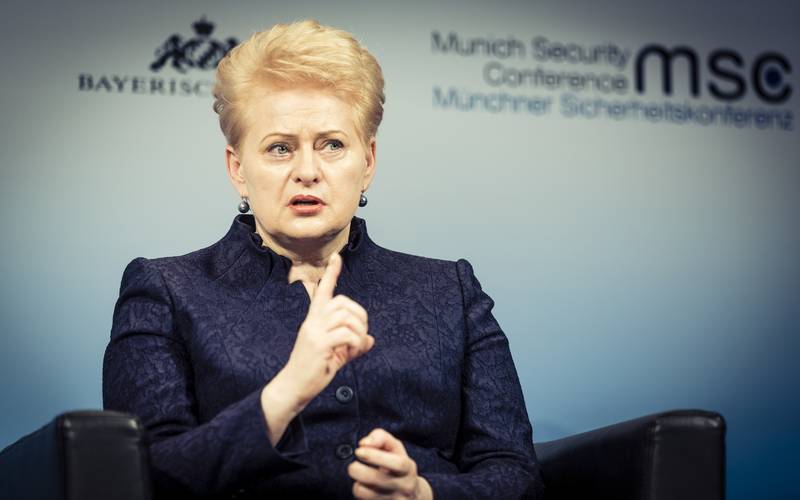 Dalia Grybauskaite | © MSC/Koerner
Dalia Grybauskaite | © MSC/Koerner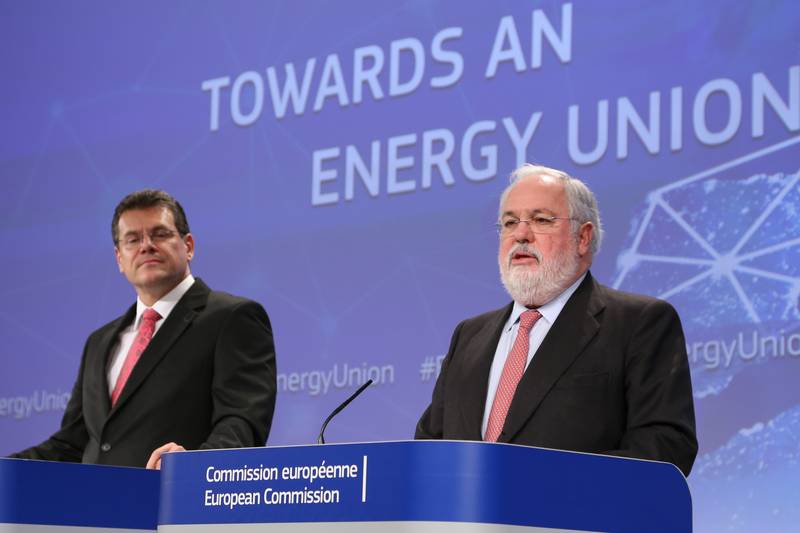 Maros Sefcovic, Miguel Arias Canete | © European Commission
Maros Sefcovic, Miguel Arias Canete | © European Commission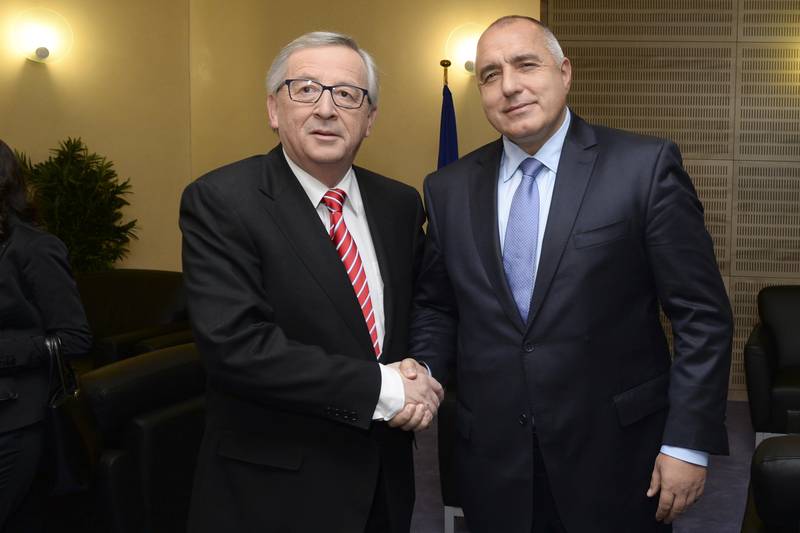 Jean-Claude Juncker, Boyko Borissov | © European Commission
Jean-Claude Juncker, Boyko Borissov | © European Commission